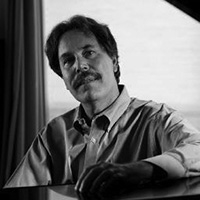Millions of Americans found inspiration in John F. Kennedy’s 1961 inaugural address, but few responded more enthusiastically than jazz pianist Hampton Hawes. Hawes watched the speech from a federal prison hospital in Fort Worth, Texas, where he was serving a 10-year sentence on drug charges. “That’s the right cat,” he later described his reaction to the new president. “Looks like he got some soul and might listen.”
The following day, Hawes told a prison official that he wanted to apply for a presidential pardon. “That’s the root of your trouble, Hampton,” the official responded. “You refuse to be realistic. When you leave here, you’re probably going back to dope because you’ll still be thinking unrealistic.”

More than a year elapsed before Hawes found an attorney willing to handle the pardon request. Finally, toward the close of 1962, a stack of pages arrived in the mail, but this massive “Application for Executive Clemency” was just the start of more work. Hawes spent countless hours filling in the blanks and answering the questions, even adding some Latin phrases (“heavy legal shit,” as he later described it) he got out of the prison library. The pianist also secured 18 letters of recommendation to accompany his request for a pardon.
Hawes then sent it off to Washington, D.C., and waited.
Against all odds, President Kennedy responded. Although many major jazz stars spent time in prison on narcotics charges during the middle decades of the 20th century, only Hawes received a presidential pardon. Fifty years ago, on August 16, 1963, JFK granted executive clemency to the pianist, and thus allowed one of the most talented jazz artists of the era to resume his career.
The Hawes pardon would be one of Kennedy’s last executive acts. Only 98 days later, Lee Harvey Oswald shot JFK in Dallas, not far from the prison Hawes recently left. Kennedy only granted clemency to 43 people during his last year in office. Hawes received pardon No. 42.
The pianist would survive Kennedy by 15 years, before succumbing to a cerebral hemorrhage at age 48. But during that period, Hawes made more than a dozen albums, performed all over the world, and even wrote a successful book. His autobiography Raise Up Off Me, co-authored with the late Don Asher, still ranks among the most readable—and brutally honest—jazz memoirs ever published.
Hawes first made his mark on L.A.’s Central Avenue jazz scene while still a teenager. One of the first West Coast musicians to embrace the new bebop sound, Hawes learned its intricacies straight from the source, serving as informal chauffeur to jazz icon Charlie Parker during the latter’s L.A. stint in the mid-1940s.
Hawes played piano with an intensity and drive that stood in stark contrast to the cool West Coast jazz sound that gained popularity during the 1950s. “Hampton Hawes might be one of the most intriguing pianists in the jazz canon,” jazz musician Matthew Shipp recently told me. “He is a West Coast musician who plays with what to me feels like an East Coast energy and passion.”
Signed by Les Koenig to the Contemporary label, Hawes made his mark via a series of gritty trio and quartet recordings still prized by jazz fans today. If forced to pick a favorite, I’d point to the remarkable results of a marathon session that started after sunset on November 12, 1956, and didn’t finish until dawn the following day. In that one burst of creative energy, Hawes recorded more than two hours of riveting jazz music. The label released All Night Session!, as the project is known today, on three LPs.
But the same artist who played with such fire on the bandstand was burning out of control in his private life. The son of a minister, Hawes started using heroin around the time he turned 20. He saw it as part of jazz vocation, and later claimed that most of the musicians he knew at the time were addicts.
Hawes later denied that drugs helped him play jazz—a beguiling myth that killed many of his contemporaries. “Some learned, and others never did,” he wrote in his autobiography. But Hawes gained this wisdom the hard way, and almost too late. He was arrested on his 30th birthday. The jazz fan who pestered him for narcotics turned out to be a federal agent. When the judge handed down a 10-year sentence, the pianist realized with shock and anger that he had just lost the prime years of his career. But Kennedy’s pardon gave Hawes a rare second chance and, to his credit, he made the most of it.
Thirty-five years after his death, Hawes is still an inspiring figure to jazz musicians. Pianist Shipp praises Hawes’ “clarity, grace and energy” but also notes the “fearlessness to how he connects his ideas and generates his space.” Jazz pianist Ethan Iverson, a member of the influential trio the Bad Plus, is too young to have ever heard Hawes in performance, but he has repeatedly praised this predecessor’s work, and even published note-for-note transcriptions of several of Hawes’s solos on his website. “His music is always soulful and authentic,” Iverson tells me, adding that the pianist’s memoir “teaches jazz history better than any textbook.”
I agree with their appraisals. But Hampton Hawes may have shown the most fearlessness away from the keyboard, when he took on the system and found an unlikely advocate in the president of the United States. In the coming weeks, we will be reading about many 50th anniversaries relating to the closing days of the Kennedy administration and its aftermath, but these will be the occasion for mourning and musing on might-have-beens. Unlike these, the Hawes pardon gives us an anniversary well worth celebrating.
Hawes may have described it best. “Wasn’t no miracle,” he explained to those startled by this turnabout in his fortunes. “The only thing that had happened was the most ordinary thing in the world—somebody was watching over the country.”





